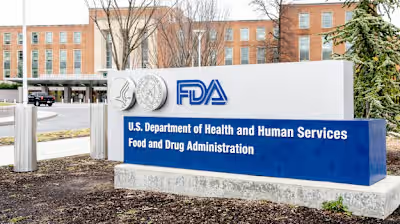Verve Gets FDA Go-Ahead for First In-Human Base Editing Study i…
Pictured: Verve Therapeutics CEO Sekar Kathiresan/Courtesy Companyleaders.org
Verve Therapeutics announced on Monday that the FDA has lifted a clinical hold that previously blocked the company from enrolling participants in its heart disease study. The company plans to begin activating U.S. clinical trial sites for its heart-1 clinical trial evaluating the effectiveness of VERVE-101 as a treatment for heterozygous familial hypercholesterolemia.
After the clinical hold on VERVE-101 was placed in November 2022, the FDA showed to be extremely cautious with base editing technology when they requested several modes of safety information from Verve a month later. The FDA also asked for data comparing the treatment’s potency in animal tests versus humans.
However, the company is now on track and has been granted clearance.
“We were able to comprehensively address all of the preclinical questions, provide the clinical data, and then got our [application] cleared,” CEO Sek Kathiresan said in a statement.
Kathiresan, a cardiologist and geneticist, formed Verve five years ago with the aim of developing a one-time treatment for heart disease. The company’s gene-editing therapy VERVE-101 is an investigational, in vivo base editing medicine which inactivates the PCSK9 gene in the liver to lower blood low-density lipoprotein cholesterol (LDL-C).
Heterozygous familial hypercholesterolemia (HeFH) is a common and life-threatening inherited disease featuring persistent elevations in blood LDL-C and accelerated atherosclerotic cardiovascular disease.
“The clearance of our IND application by the FDA is a significant milestone in our effort to offer patients living with HeFH a transformative alternative to the chronic care model of disease management.” Verve CSO Andrew Bellinger said in a statement.
Given that the current model of daily pills and intermittent injections is not very effective, the company hopes that with the one-time therapy they can address that unmet need and provide a deep and durable lowering of LDL. VERVE-101 uses a form of CRISPR base editing that edits a single DNA letter, or base. The ability to turn off PCSK9 could noticeably lower LDL cholesterol, high levels which are correlated with cardiovascular disease.
Next month, the company plans to present data that will provide an indication of how well VERVE-101 may work in patients with HeFH. Although the results will include data from outside the U.S., Verve plans to begin recruiting participants and collecting data in the country. The company declined to say how many clinical sites they plan to open, but confirmed there would be multiple locations.
In June 2023, Verve secured a $60 million investment from Eli Lilly for its “one-and-done” cardiovascular gene editing program. Under the partnership, Verve will be responsible for advancing the therapy into and through the Phase 1 trial, after which Lilly would take over.
Matt Olszewski is a freelance writer based in Boston. Reach him on LinkedIn.
Like this project
Posted Oct 24, 2023
The regulator lifted a clinical hold on Verve Therapeutics’ CRISPR-based therapy clearing its Investigational New Drug application and plans to evaluate VERVE-…
Likes
1
Views
27





